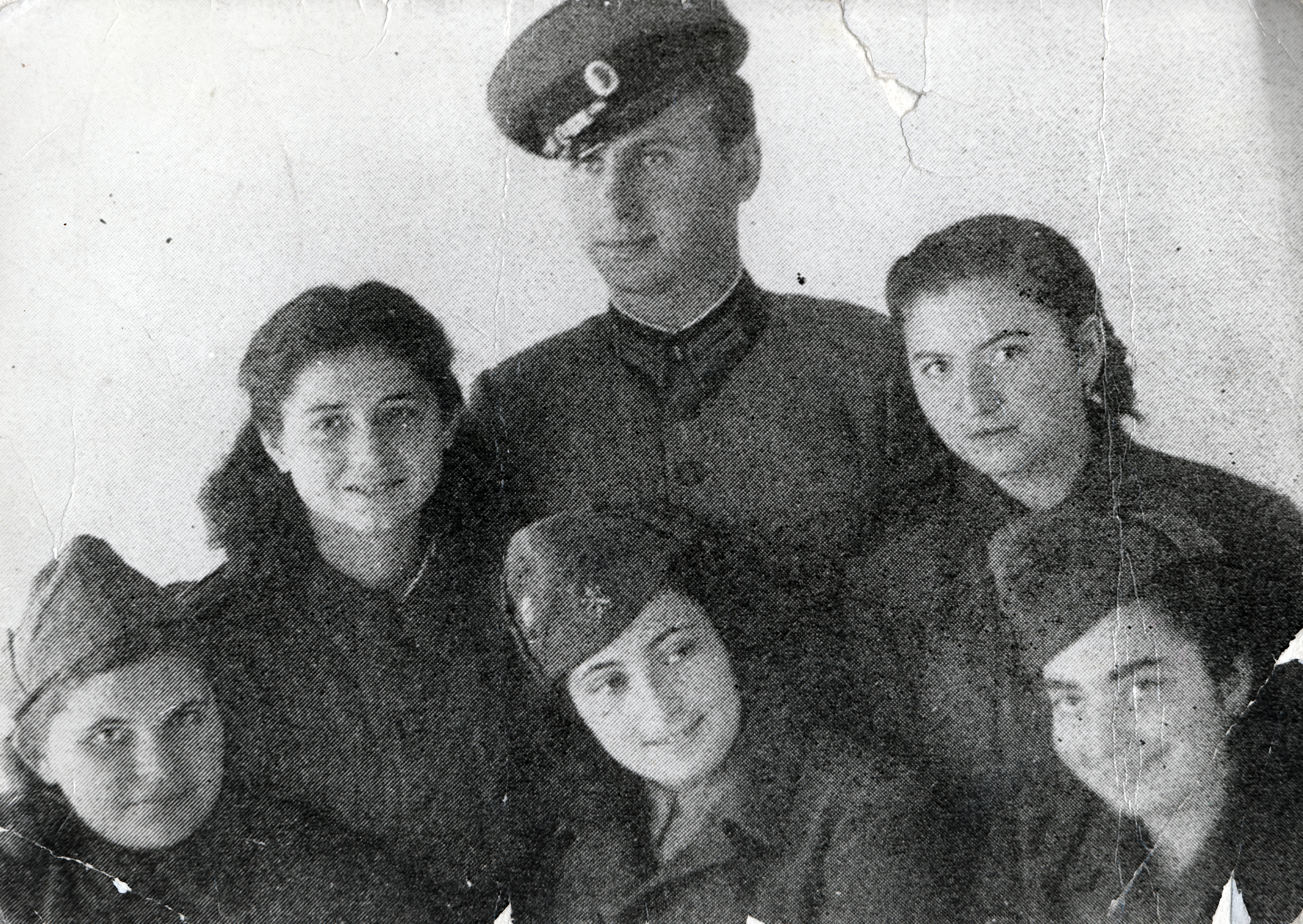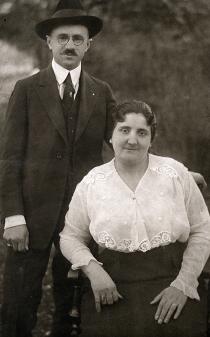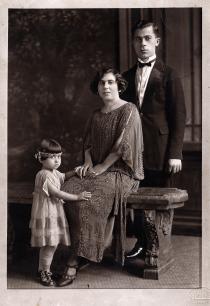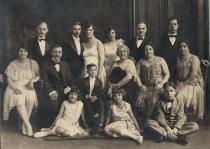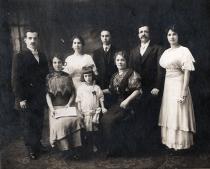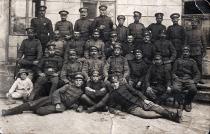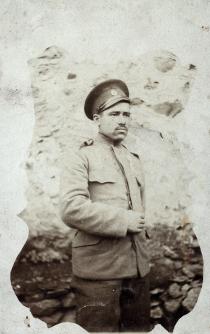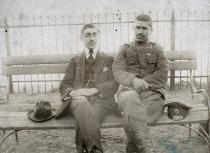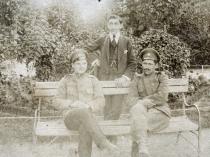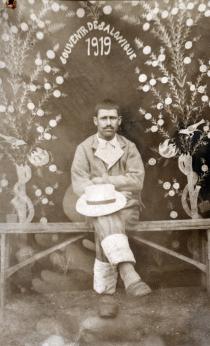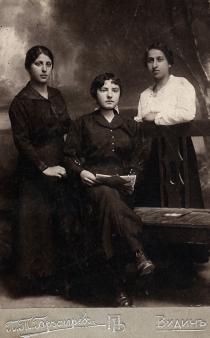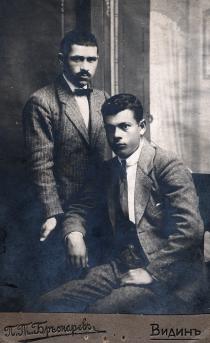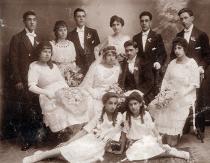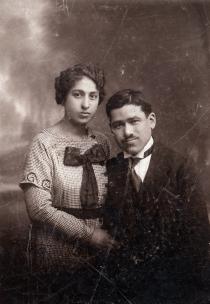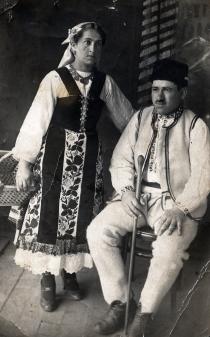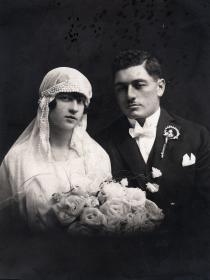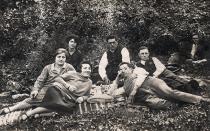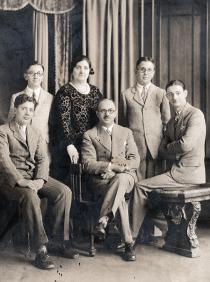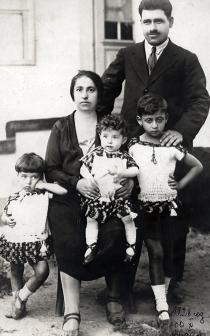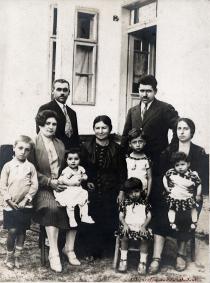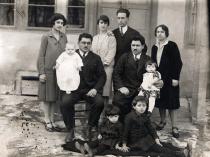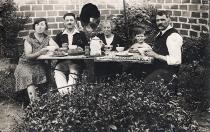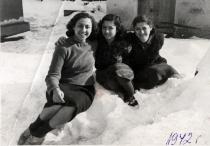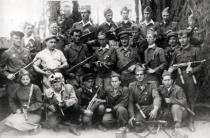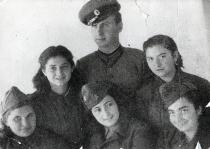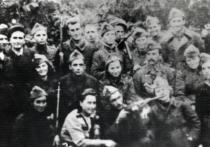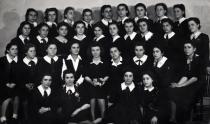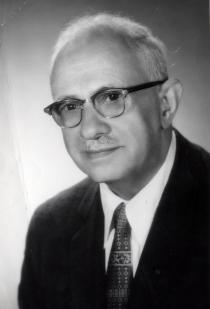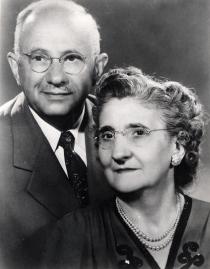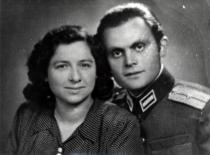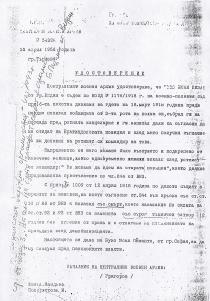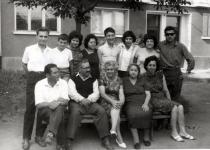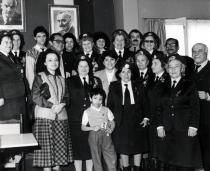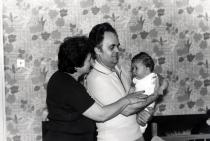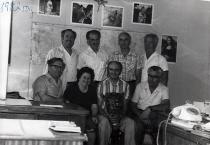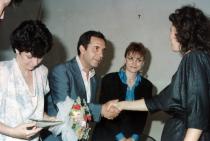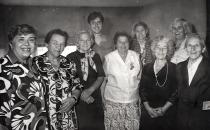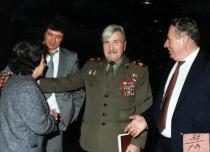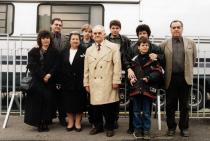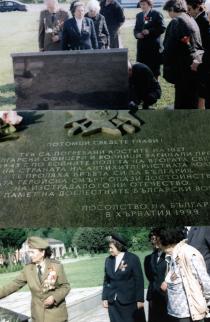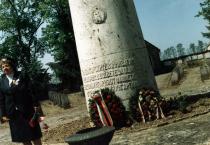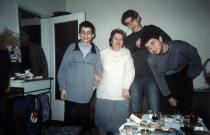This photo was taken on 10th September 1944. We are soldiers at the front here. All the women on the photo are Jews, and all have passed away but me. The commanding officer is Pavel. From right to left are: Savche Pilosof, Regina Haim, Venche Alkalay, I, Sheli Manihemova.
I went to the front when I was 17 years and three days old. The Germans withdrew on 5th September. The partisan squad climbed down on 8th September, smashed the prison gates and so my father was freed. It was such a happy moment, we all gathered on the square, all people regardless which party they belonged to. It was 10th September 1944. Then we heard that the Germans were coming back. They had forgotten to blow up the ferry over the Danube, to Calafat. And the Soviet army was on the Danube border. The commander of the partisan squad - Ivan Vitkov Bakov summoned us, 'We have to organize a volunteers' team until the Soviet armies come and the situation in the regiments is normal again. You have to stop the Germans!' We had the third Drinski regiment, but they did not go then.
So on 10th September wearing these shoes sewn by my father and a summer dress I got on the truck. My sister Veneta caught up with me and said, 'Our mother is crying, they will kill you, get off, father is not in prison any more, get off!' I was very wild. I said to her, 'I will be killed, not her, why is mother crying?' So, I left. In the village of Voynitsa we were stopped, because the Germans had already passed through the border town of Kula and headed for Vidin. The village of Voynitsa is six kilometers from Vidin. We were given weapons, although we were not instructed how to use them. I carried a manihera gun, although I saw a gun for the first time. They showed us how to shoot.
At one point two motorcycles with two people on each one - German scouts - overtook us. Our boys aimed at them, killed one of them, the motorcycle fell, the other ran away and the others escaped and returned within an hour. We shot at the tanks, but the bullets rebounded. Kostya, a Soviet soldier, who had been a captive of the Germans and had come to welcome the Soviet army, grabbed two grenades, put two more on his belt, shouted, 'For the fatherland' and threw himself at the first tank. He pulled out their plugs and blew the tank away. The other tank withdrew. So Kostya died, at the threshold of freedom. He was the first Russian soldier who died on Bulgarian land. That is why there is a notice in Voynitsa: 'The Russian soldier Kostya died here.'
I have a big sin with regard to my parents: not only did I run away from them to go to the front, but also I didn't write them a single line. In the fights in Yugoslavia a Jewish girl died. She was from Silistra. Her name was Solchi. The kulaks had killed her husband and son. I was 17 years old then; she was 25, that is, eight years older than me. They called her 'the Jewish girl'. They called me '6 by 35' because I was small and I carried a lady's gun [a smaller gun]. A friend of my father went to Vidin and my father asked him about me. 'Buko, they killed a Jewish girl, but I don't know her name?' Then they recited the Kaddish for me at the synagogue, believing that I was dead.
